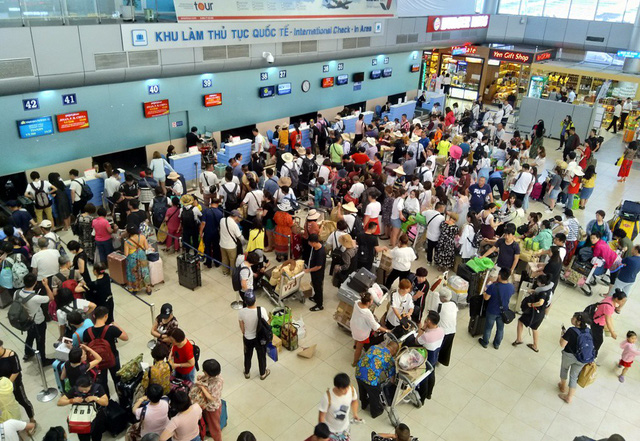The second phase of a pilot electronic visa scheme will allow visitors from 35 countries to apply for and receive Vietnamese visas via the Internet during the two-year course of the program, according to a government decree issued earlier this month.
The Vietnamese Government issued Decree No. 07/2019/ND-CP on February 1, 2019, adding updates to its precursor, Decree No. 07/2017/ND-CP, which regulates procedures for the pilot implementation of electronic visas for foreign visitors to Vietnam.
According to the newly-issued decree, citizens of the following 35 countries can apply for a Vietnamese visa via the Internet: Austria, Iceland, Belgium, Portugal, Bosnia and Herzegovina, Brazil, Qatar, Andorra, Liechtenstein, Monaco, Croatia, Estonia, Fiji, Georgia, Latvia, Lithuania, Malta, Macedonia, Micronesia, Mexico, Moldova, Montenegro, Nauru, Palau, Papua New Guinea, Marshall Islands, Salomon Islands, San Marino, Cyprus, Switzerland, China (not applicable to Chinese e-passport holders), Vanuatu, Western Samoa, Serbia, Slovenia.
Meanwhile, the same e-visa scheme had been applied to 40 countries from 2017 to last month, including Azerbaijan, Argentina, Armenia, Ireland, Poland, Belarus, Bulgaria, Brunei, South Korea, Germany, Chile, Colombia, the Czech Republic, Cuba, Denmark, Timor-Leste, the United States, Hungary, Greece, Italy, Kazakhstan, Russia, the United Kingdom, Luxembourg, Myanmar, Mongolia, Japan, Panama, Peru, Finland, France, the Philippines, Romania, Spain, Sweden, China (not applicable to Chinese e-passport holders), Uruguay, Venezuela, Norway, and Slovakia, according to Decree No. 07/2017/ND-CP.
Among that, visitors from China remain the only holidaymakers enjoying the e-visa scheme for four years during both two phases of the program.
In addition, three new Vietnamese international airports, namely Tay Trang in the northern province of Dien Bien, Na Meo in the north-central province of Thanh Hoa, La Lay in the north-central province of Quang Tri, and two new seaports including Duong Dong in the southern province of Kien Giang and Chan May in the central province of Thua Thien-Hue will also accept e-visas, besides airports, border gates and seaports stipulated in the former decree.
Vietnam’s e-visa system is operated on government domains https://www.immigration.gov.vn/ (English) and https://xuatnhapcanh.gov.vn/ (Vietnamese).
Applications are to be processed by the immigration authority within three working days, after which time approved applicants can access and print their e-visa using an ID provided by the websites during the submission process.
Visa fee payments will be made by bank transfer to guarantee transparency and convenience for tourists and minimize intermediate costs.
No letter of guarantee or invitation is required for online visa application, and e-visas will have a validity period of 30 days.
With the employment of the program, Vietnam’s immigration authority can directly issue visas to visitors from those foreign countries where it has no representative office, making it easier and cheaper for tourists to visit the Southeast Asian nation.
Like us on Facebook or follow us on Twitter to get the latest news about Vietnam!





















































